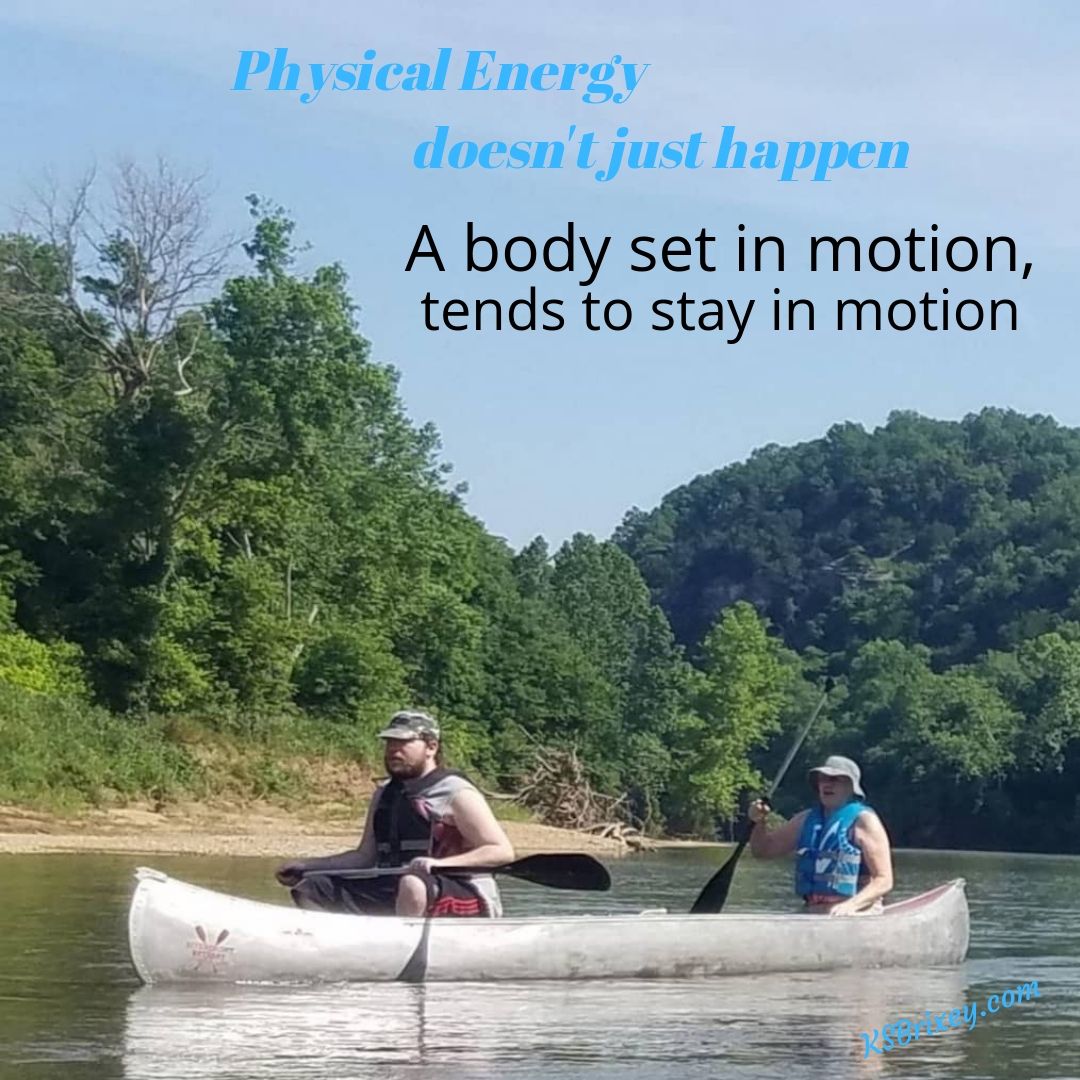You know those people who are getting it done. They seem to be doing all the things you want to be doing. They seem to have it all. Where do they find the time? It’s not really about time. We all have the same amount of time every day; 1,440 minutes each and every day.
Time management failed not because we didn’t know our priorities or how to create a to do list. Time management failed because we didn’t create and maintain our physical and mental energy throughout the day. Let’s take another look at the sources of physical energy.
Five Primary Sources of Physical Energy:
- The Food You Eat, see Who Else Wants More Energy
- The Water You Drink, see Give Me 15 Minutes
- The Amount You Move Throughout the Day, see Give Me 15 Minutes
- The Sleep You Get At Night, keep reading
- The Connections You Have With Others (Interesting, huh?), see You Don’t Need A Mate to Be Happy
We create physical energy by eating right, drinking enough water, getting up off the couch and moving, making and maintaining face to face connections with positive people, and by being intentional about the quality and quantity of sleep we get each night and rest we get throughout a busy day.
Deep Rest
I have addressed the previous four primary sources of physical energy in the past three posts, so today we will focus on sleep and rest. Sleep is the deep rest we need each and every night especially during the hours between 2am and 5 am. Sorry midshifters, you can’t make up for missing these critical hours of sleep during the day. If can’t get 8 hours of sleep every night, at least adjust your sleep wake cycle to include deep sleep for these critical three hours.
Best Practices for Shift Workers
Being a former shift worker let me just suggest a few things to help you keep from draining your physical energy while trying to maintain a crazy work schedule. #1 Try to get a shift that does not rotate if at all possible. Rotating shifts are physical energy zappers. #2 If your workhours do rotate, try to rotate your sleeping hours around the core three hours, 2am - 5am. So maybe you go to bed early in the evening and get up at 5am for the day shift and get to bed to sleep by 2am and sleep later in the morning on your evening shifts. For midshifts, the best sleep time is probably as soon as you get home in the morning after your shifts. Don't resort to high energy drinks to keep you up all night. You must rely on the above primary sources to maintain your energy.
Best Practices for Quality Sleep
The goal is maintaining a sleep schedule of 7-9 hours each night. Here are a few best practices for the quality sleep necessary to renew your physical (and mental) energy.
- Create an evening routine that begins several hours before bedtime
- No liquids two hours before bedtime
- No food after 6pm
- Shut off the TV and other bluescreens (smart phones, video games) two hours before bedtime
- Read a book or write in a gratitude journal
- Turn down your bed
- Slow down (workout as minimum of 3 to 4 hours before bed)
- Set out work and workout clothes for the morning
- Create an Afternoon routine that includes paying bills, making decisions, checking meal plans and to do lists, and has must dos out of the way several hours before bedtime
- Maintain the same bedtime and bedtime routine, as much as possible
- Create a comfortable sleeping room without distractions from your smartphone, cool and dark, and quiet.
- Get up at the same time every day. If you feel like you are dragging yourself out of bed, get up a few minutes early and read a book to help you slowly wake up.
- Don’t skip your morning workout.
- Skip your morning and especially your afternoon caffeine in any form; coffee, tea, soda pop. Of course, do not drink caffeine later in the day or evenings. Don’t forget there is caffeine in chocolate.
- If you feel like you absolutely need a nap after work, keep your nap to a 15 or 20 minute power doze and no more.
Rest Restores Energy
Rest is an important source of physical energy in addition to your 8 hours of quality sleep at night. Rest happens throughout the day. It might be your power nap but generally it is just a change in your energy state. If you work sitting at a computer, a rest break may be getting up and taking a five minute walk every hour. In the middle of your workout, a rest may be stretching for 10 seconds in between sets.
Intentional State Changes
Intentionally changing your current energy state throughout the day creates a big boost in physical energy. Many experts suggest the 20 minute rule. Changing states every 20 minutes even if it is only temporary, like a quick 2 minute walk to the kitchen for a glass of water and back, your body responds with a surge of energy. This state change not only boosts your physical energy but it also reduces other health risks associated with a sedentary lifestyle.
The Cost of Lack of Sleep is Extreme
Getting enough quality sleep every night is important for boosting and maintaining physical energy so you can enjoy the things you want to get up and do. It also affects the other sources of physical energy. Lack of sleep affects our food choices, it affects our workouts, and it effects our relationships with others.
Routines Boost Energy
These five sources of physical energy: food and water, sleep and rest, your body in motion, and positive connections are synergistic. They feed off each other. They boost and they can drain each other. Create morning, afternoon, and evening routines that help foster a good physical energetic lifestyle so you have the energy you need to live the life you want to live.
Get Connected
For other ways to boost your energy, subscribe to my blog. This week I’ve been sharing about increasing and maintaining your physical energy. Next month we will focus on energy boosts for your mental, spiritual, and environmental health.
I’d love to hear about your morning, afternoon, and evening routines that boost your physical energy. How do you maintain a quality sleep schedule? Scroll down to comment below or click on the link to my facebook page at https://www.facebook.com/brixeyks

